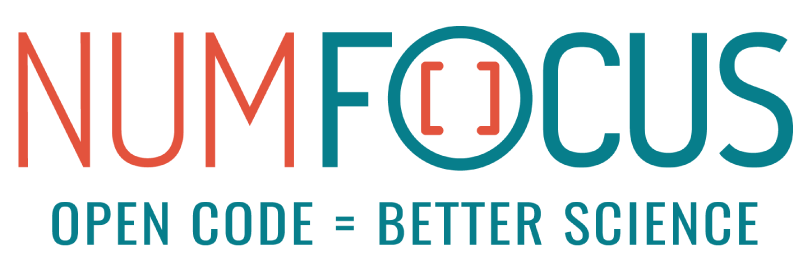xarray: N-D labeled arrays and datasets



xarray (formerly xray) is an open source project and Python package that makes working with labelled multi-dimensional arrays simple, efficient, and fun!
Xarray introduces labels in the form of dimensions, coordinates and attributes on top of raw NumPy-like arrays, which allows for a more intuitive, more concise, and less error-prone developer experience. The package includes a large and growing library of domain-agnostic functions for advanced analytics and visualization with these data structures.
Xarray was inspired by and borrows heavily from pandas, the popular data analysis package focused on labelled tabular data. It is particularly tailored to working with netCDF files, which were the source of xarray's data model, and integrates tightly with dask for parallel computing.
Why xarray?
Multi-dimensional (a.k.a. N-dimensional, ND) arrays (sometimes called "tensors") are an essential part of computational science. They are encountered in a wide range of fields, including physics, astronomy, geoscience, bioinformatics, engineering, finance, and deep learning. In Python, NumPy provides the fundamental data structure and API for working with raw ND arrays. However, real-world datasets are usually more than just raw numbers; they have labels which encode information about how the array values map to locations in space, time, etc.
Xarray doesn't just keep track of labels on arrays -- it uses them to provide a powerful and concise interface. For example:
- Apply operations over dimensions by name:
x.sum('time'). - Select values by label instead of integer location:
x.loc['2014-01-01']orx.sel(time='2014-01-01'). - Mathematical operations (e.g.,
x - y) vectorize across multiple dimensions (array broadcasting) based on dimension names, not shape. - Flexible split-apply-combine operations with groupby:
x.groupby('time.dayofyear').mean(). - Database like alignment based on coordinate labels that smoothly handles missing values:
x, y = xr.align(x, y, join='outer'). - Keep track of arbitrary metadata in the form of a Python dictionary:
x.attrs.
Documentation
Learn more about xarray in its official documentation at https://xarray.pydata.org/
Contributing
You can find information about contributing to xarray at our Contributing page.
Get in touch
- Ask usage questions ("How do I?") on StackOverflow.
- Report bugs, suggest features or view the source code on GitHub.
- For less well defined questions or ideas, or to announce other projects of interest to xarray users, use the mailing list.
NumFOCUS

Xarray is a fiscally sponsored project of NumFOCUS, a nonprofit dedicated to supporting the open source scientific computing community. If you like Xarray and want to support our mission, please consider making a donation to support our efforts.
History
xarray is an evolution of an internal tool developed at The Climate Corporation. It was originally written by Climate Corp researchers Stephan Hoyer, Alex Kleeman and Eugene Brevdo and was released as open source in May 2014. The project was renamed from "xray" in January 2016. Xarray became a fiscally sponsored project of NumFOCUS in August 2018.
License
Copyright 2014-2019, xarray Developers
Licensed under the Apache License, Version 2.0 (the "License"); you may not use this file except in compliance with the License. You may obtain a copy of the License at
https://www.apache.org/licenses/LICENSE-2.0
Unless required by applicable law or agreed to in writing, software distributed under the License is distributed on an "AS IS" BASIS, WITHOUT WARRANTIES OR CONDITIONS OF ANY KIND, either express or implied. See the License for the specific language governing permissions and limitations under the License.
xarray bundles portions of pandas, NumPy and Seaborn, all of which are available under a "3-clause BSD" license: - pandas: setup.py, xarray/util/print_versions.py - NumPy: xarray/core/npcompat.py - Seaborn: _determine_cmap_params in xarray/core/plot/utils.py
xarray also bundles portions of CPython, which is available under the "Python Software Foundation License" in xarray/core/pycompat.py.
xarray uses icons from the icomoon package (free version), which is available under the "CC BY 4.0" license.
The full text of these licenses are included in the licenses directory.